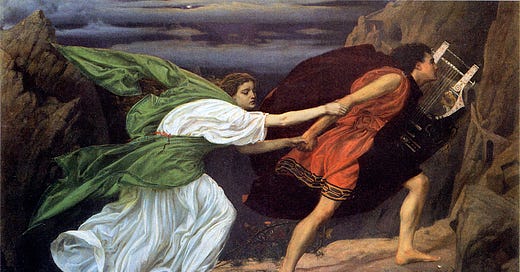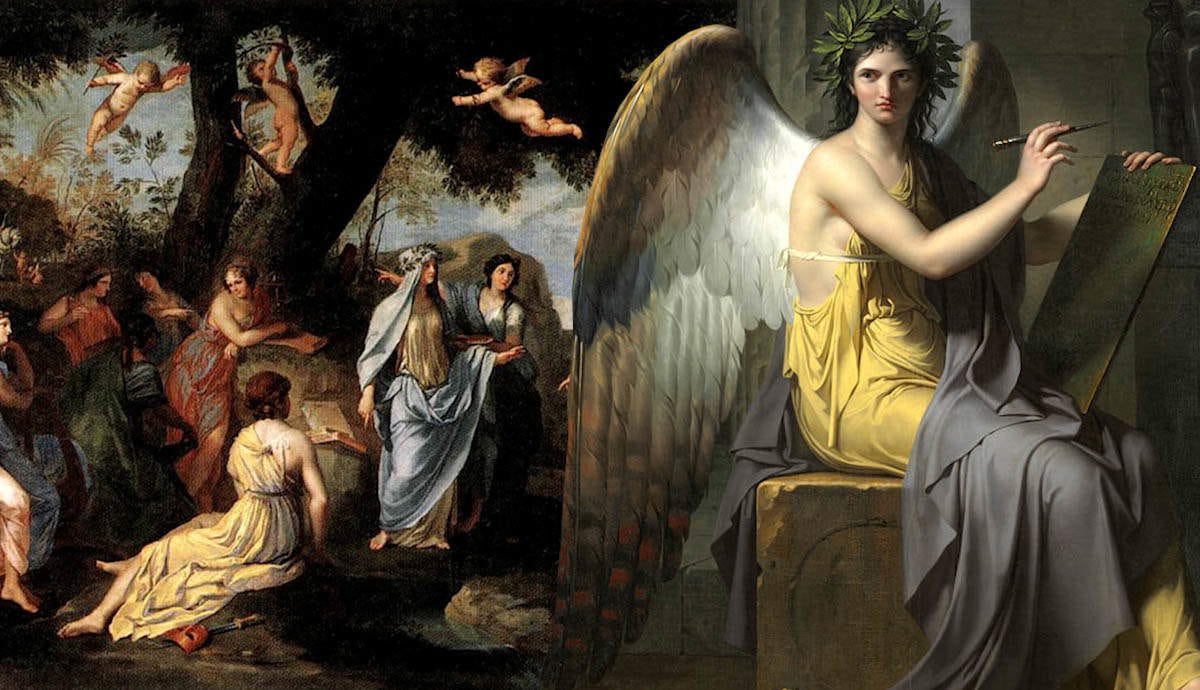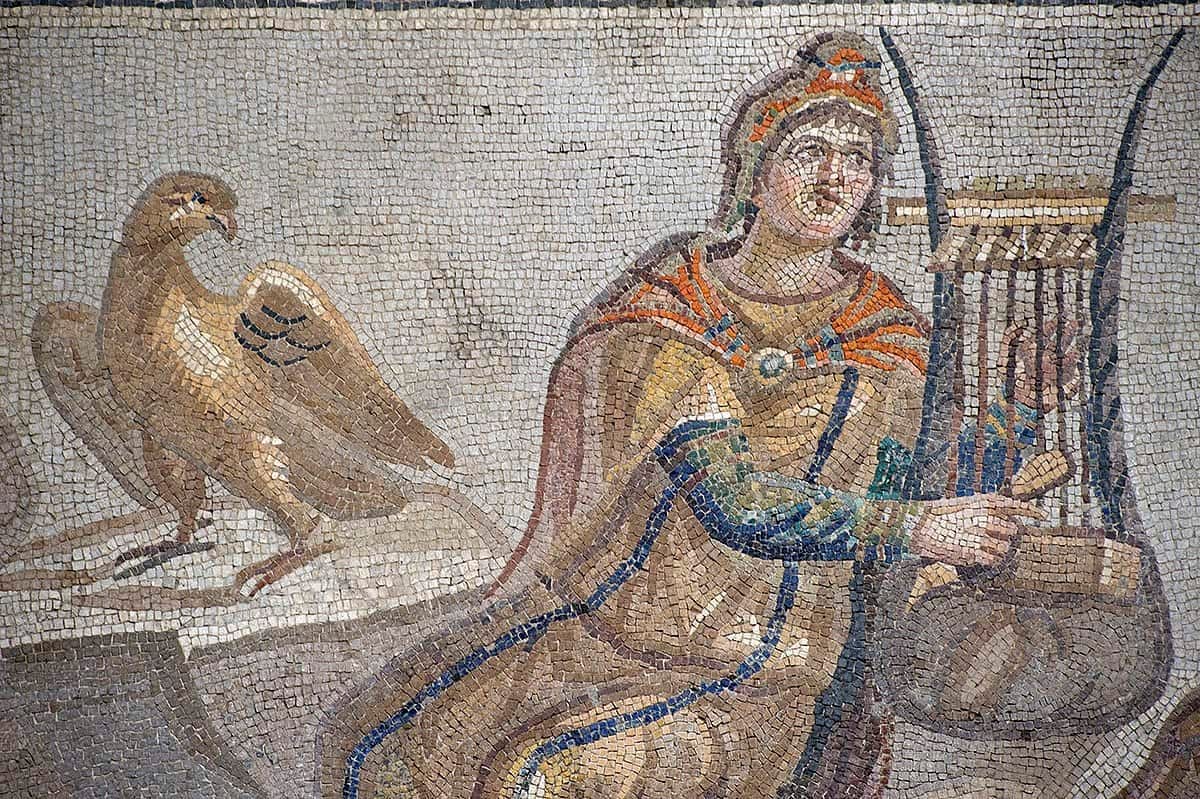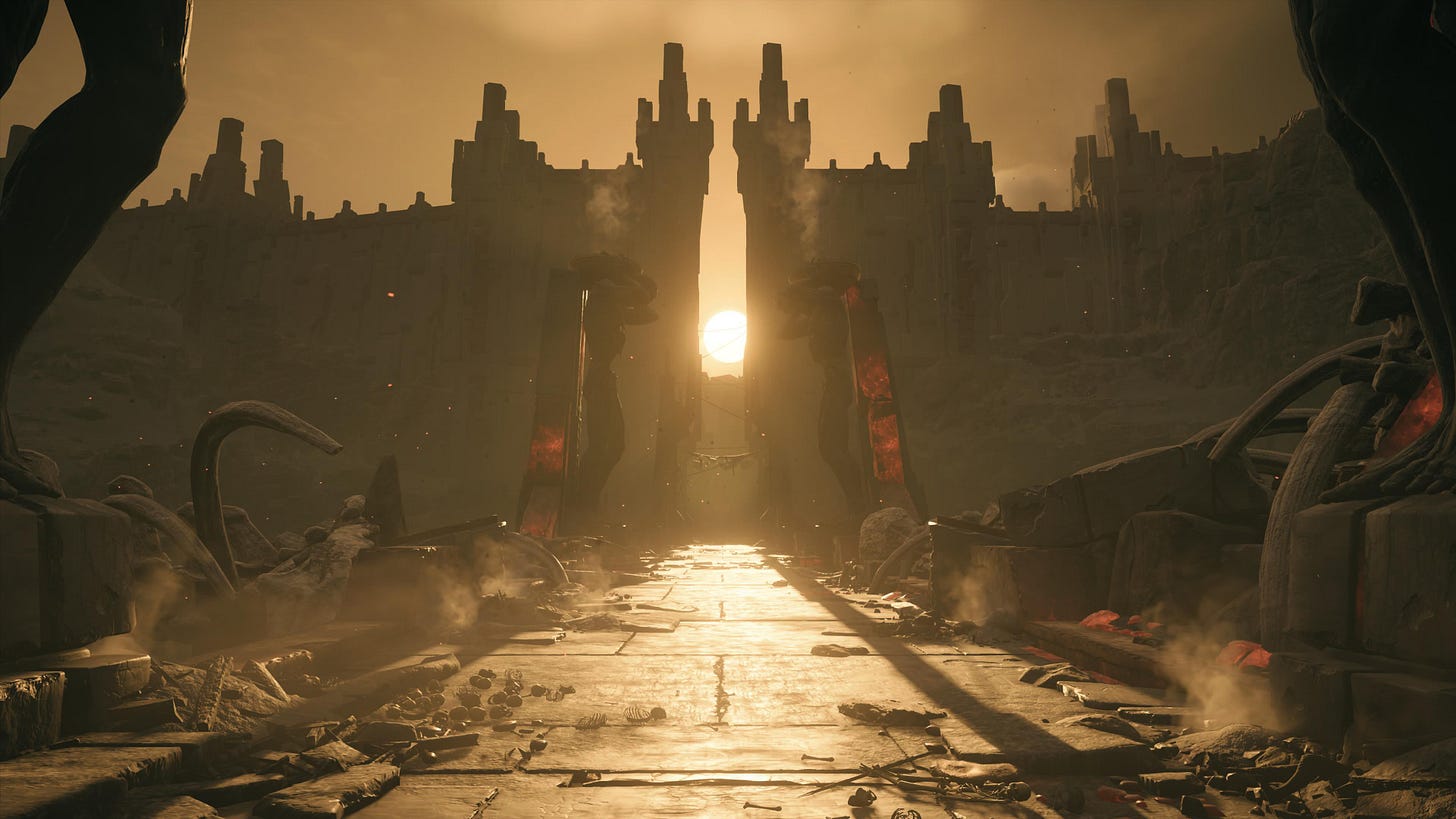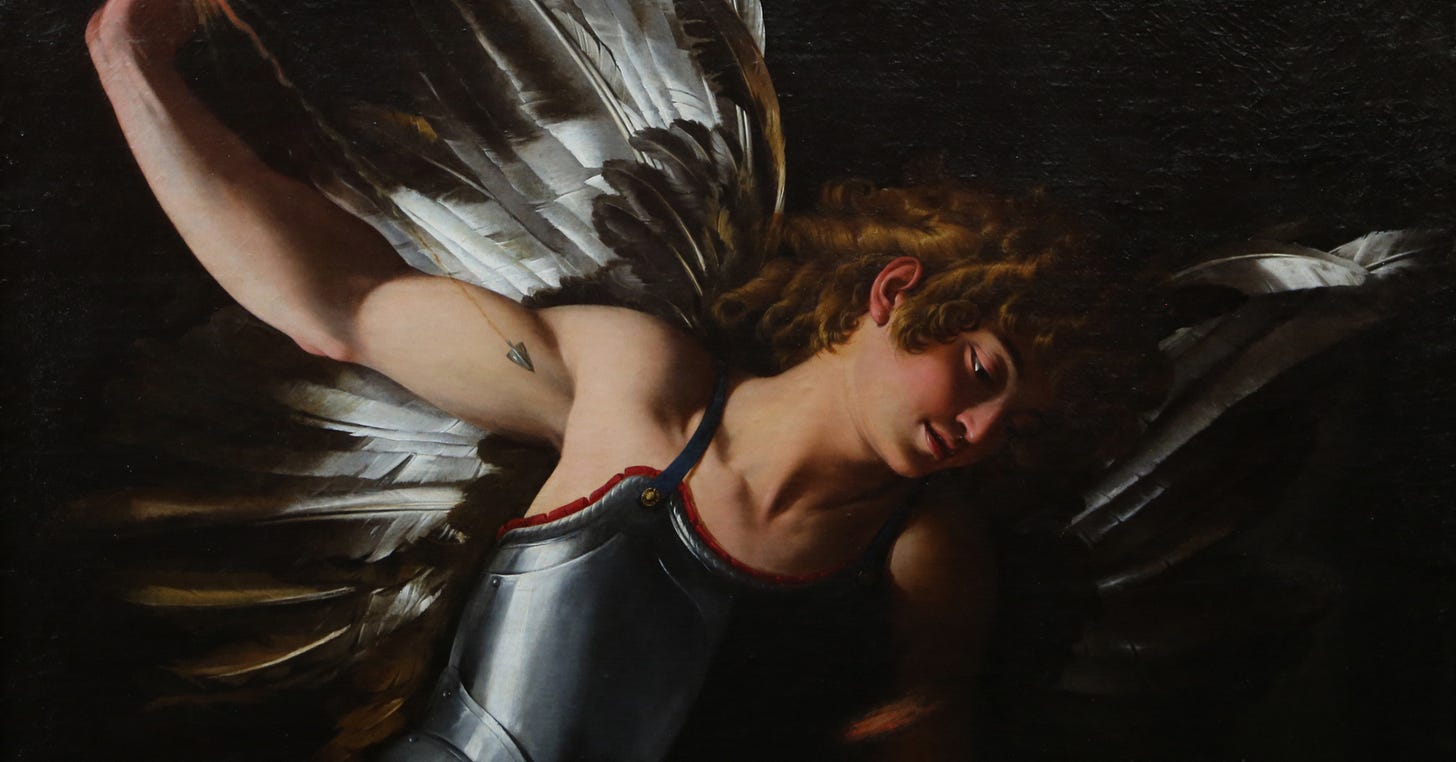There is a longing so deep, so ancient, that it often goes unnamed. It doesn't present itself as lust, nor as love, but as need. It is the aching undercurrent beneath most confessions of heartbreak, rage, worship, and despair. And it’s not truly about the woman in front of you. It’s about the mother.
Not the literal mother, but the one lodged in the unconscious. The psychic blueprint. The great regressor. The one who was supposed to hold you, feed you, save you. The one who failed, or vanished, or smothered, or was never really there. And so the boy inside, or the orphan, or the wounded twin, goes searching. First in lovers. Then in goddesses. Then in the Anima herself. Much of “spiritual seeking” is just trauma performing healing rituals for an imagined mommy who never arrives.
The Ghost Mother: Anima as Mirror, Not Womb
It is this longing that turns real women into screens for projection. It is this longing that dresses the Anima in veils she never asked to wear. And it is this longing, when unexamined, that corrupts the initiatory path into a labyrinth of need and grief, rather than liberation. Even Orpheus couldn’t truly escape it. Even he, with all his mythic beauty, his descent into death, his luminous songs, carried this longing still. And it cost him everything. Including the truth of Dionysus.
Because so long as we place the Anima in the role of cosmic mother, we remain in the child position. Still waiting to be held. Still looking backwards. This is the root of the error. And the myth reveals it, if we have the stomach to look.
Orpheus’ Error: The Child Looking Back
This is why, even Orphism itself, in its original form, had its issues. This is not a question of conscious fault, more of trying to do the best Orpheus could to rectify the same old issue. The one that goes all the way back to the first split. Despite all his gnosis, Orpheus made one slight mistake. Which was to make Persephone the mother of Dionysus, instead of Nyx.
It was known already in the initiatory circles that Dionysus was truly Phanes-Dionysus, both the source of the cosmos, and the dismembered divine child within it. The one who appears as light from the egg of Night, and the one torn apart by the Titans. They already associated Phanes with Eros, and with Dionysus-Zagreus. Calling him Phanes-Dionysus, or simply, the shining child. And yet, somewhere in the remapping of the mysteries, the lineage was re-written. Made safer. More digestible. And more tragic. Because Persephone is not his mother. Nyx is.
And this single re-assignment, this one symbolic re-coding, would become the trap that even the mystery cults could not escape. But the myth of Orpheus himself reveals the source of this confusion. He could not let go of his longing for Eurydice. And so he betrayed Dionysus, for pseudo-Apollo, who in truth is Kronos in Apollonian garb. The child longing for the ghost of the mother-Anima, the image he cannot help but chase.
The Purity Fetish and the Persephone Complex
In Orphism, the soul’s journey was cast in moral tones: you must become pure to return to the goddess. The flesh was a tomb (soma sema), and the soul, fallen from the stars, must ritually cleanse itself of the stain of incarnation. At first glance, this looks noble, a spiritual devotion, a yearning for the divine. But beneath it lies something far more primal and unresolved: the longing for the lost mother.
Persephone, in the Orphic mythos, becomes the reward for the purified initiate. She is the one the soul returns to. This turns her from the sacred initiatrix, the guide through shadow, into the prize for having done it right. The clean womb. The safe mother. The one who takes you back when you're finally good enough. But this is not the way of Dionysus. It is the way of Kronos. So time, guilt, and the endless loop of penance.
To seek purification in order to earn love is the logic of the wounded inner child. It is the ghost logic of those who were told they had to be calm, clean, quiet, or holy to be held. It is not transformation, it is performance. It is not a descent into mystery, it is the terror of being unworthy projected onto the cosmos. And so Persephone was turned into a cosmic mommy, whose love must be earned. And the Anima, instead of liberating the soul into wholeness, becomes a mirror for shame. One more thing to be pure for. This is not to speak ill of Orpheus. His error was human.
The Death of Christina, the Birth of Lucia
I made the same mistake myself. I projected the mother longing onto my own Anima, Christina. Not as a conscious act, but as the old reflex. That need for completion. That ache we carry through so many lives. And so she too began to vanish, to dissolve, to return to the underworld where I could no longer find her. Not as she once was. And I grieved. I searched. I made the same offering of song to her death. Yet she only had retreated, as she never was to be a substitute mother.
It was only when I let go of this final longing, the one that seeks a return to the mother that never was, that Kronos, and with him the entire structure of victim-child versus ghost-mommy, could dissolve. It was only when I let go of my grasp on how Christina-as-Anima was, that I could see what had been happening beneath it all. From what once was Christina, Lucia Nyktelios was born. She was never a mother. She was a gate. She had undergone her own transformation. And it was necessary. If I was to be truly free, not merely recovered, not merely healed, but free in the mammalian night, then the Anima had to be restored. Not to her pedestal, but to her path. Not as grieving Persephone, mother of divine sons, but as Nyx, the one before the roles were cast. This is when Dionysus becomes Phanes again. A child of Nyx.
The Restoration of the Anima
Thus restoring the Anima as the true initiatrix that she is. She is the guide of Dionysus. And thus, Bassareus. Not his mother. She may grieve for what happened to the inner child, but she does not become its ghost caretaker. To project the role of mommy onto her is to remain in the looping trauma spiral. It is to keep chasing Eurydice across the river. It is to forget that Eurydice was never lost, only that she was never meant to be held or grasped in that way. She is to be free, not made into what she is not.
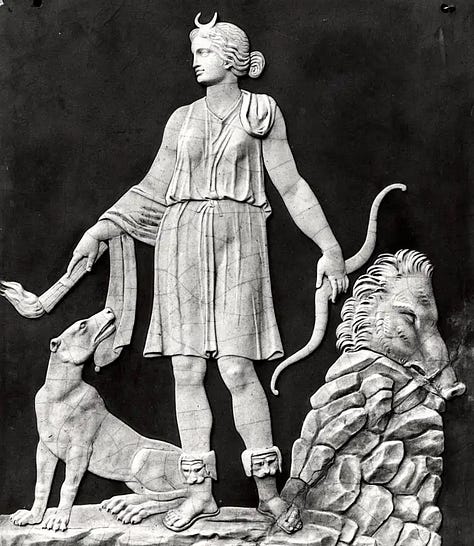
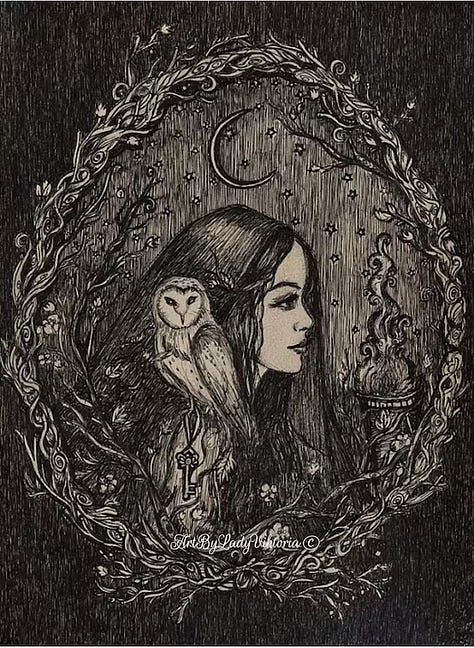
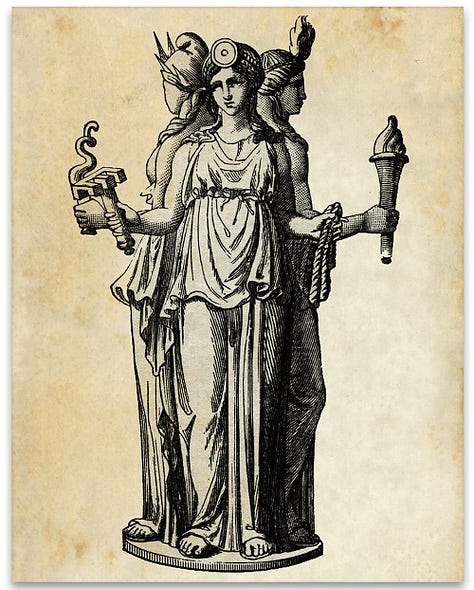
Nyx is the dark from which all mammals are born. She is not the caretaker of your wounds. She is not a figure from your story. She is the animal breath inside your body, waiting to return. She is the rhythm that comes before narrative. Before healing. Before myth. And only when you remember this, can you crawl back through the skin of your own shame scripts, back into the mammal you really are. No more archetypes. No more longing. No more stories to complete you. Just this. Just Nyx.
If you let what you think you are dissolve. Then the border between the constructed self and the forgotten soul dissolves. What once stood as a narrative scaffold, the myths that held the ego together, the cultural cosmologies that ordered reality, begins to collapse from within. This collapse is not destruction. It is implosion, the return of psyche to soma, of symbol to sensation. Myth, having served its purpose as a bridge between the unknown and the known, falls silent. Its gods recede. The map burns. And in its place: the rawness of presence. Phanes reborn.
This is not regression, but re-embodiment. The soul, no longer exiled into abstraction, returns to the body. Not the body as concept, but the felt world, pulse, breath, scent, gravity, skin. There is no longer a split between observer and experience, no distance between consciousness and the world. The body remembers itself as nature, not as possession. Here the human becomes feral, not wild in chaos, but wild in truth. No longer tamed by roles, ideals, or internalized cosmologies. Feral as deeply present. Feral as unrepeatable. Feral as free, not in opposition to society, but beyond its mythic spell. That is what it truly means to be a Nyktelioi. A child of Nyx.

